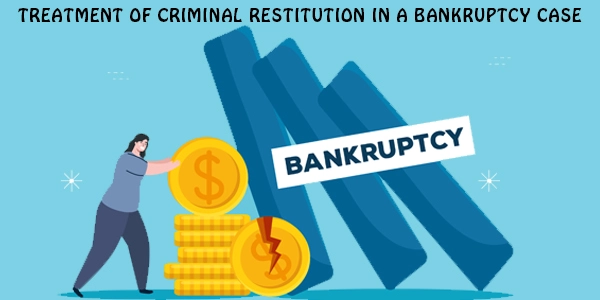Criminal restitution is money that the offender must pay to the victim (or the victim’s insurance) to compensate the financial losses suffered by the victim as a direct result of the offense. It is a monetary debt that the offender owes to the victim.
If a debtor owes criminal restitution, then it might not be discharged even in bankruptcy. Even if the restitution is paid shortly before the bankruptcy filing, it may be considered to be a “preference”/”preferential payment” and the bankruptcy trustee may recover it from the recipient, causing the debtor to be still liable for the payment.
What is preferential payment?
Bankruptcy Law primarily aims at giving debtors a fresh financial start, by waiving or restructuring overwhelming debts. Also it intends to treat all the creditors fairly so they are paid off reasonably. But, contrary to the concept of fair treatment to creditors, preference puts the preferred creditor in a more advantageous position than other creditors. Usually payments of money are treated as preferences.
Since the preferential status of a payment thwarts the fair treatment to creditors, it is considered unfair. Therefore, the bankruptcy trustee (the official on the case) can avoid preferential payments and claim their return from the recipient, so the money goes into the bankruptcy estate and all the creditors are paid rationally.
But before the court avoids a payment, it will make sure the following criteria are met:
- Payment was made on a pre-existing debt, instead of a debt incurred at the time of payment.
- Payment was done by the debtor to the creditor.
- Payment made while the debtor was insolvent.
- The creditor suspected or should have suspected that the debtor was insolvent at the time of payment
- Payment was made within 90 days of bankruptcy filing.
- The payment gave the creditor an advantage over other creditors (usually determined as the creditor receiving more than they would have if they had been included in or paid through the bankruptcy procedure)
Why is Criminal Restitution a preference?
Now, the obvious question is why criminal restitution should be treated as a preferential payment in bankruptcy. The answer is simple. If you are sued for injuring someone and are found liable to the injured claimant, the money you owe him/her is regarded as debt. Similarly, money someone is ordered to pay as restitution for having committed a crime is also a debt and the recipient who is supposed to receive the compensation attains the status of a creditor. And since the restitution is a debt, it is subjected to the preference rules of bankruptcy.
However, it is worth mentioning that most criminal restitution debts are not discharged by bankruptcy. It means that bankruptcy will not eliminate these obligations, and the bankrupt will still owe them. Therefore, if the trustee claims a restitution payment made shortly before the bankruptcy, the debtor may still owe that money, even during and after bankruptcy, and will be required to compensate the recipient.
How can a lawyer help a Restitution recipient?
Bankruptcy is a complex legal procedure and the law concerning the preferences abounds with complicated legal nooks and corners. Therefore, stopping the recovery of an already paid restitution is not quite easy.
So, if you have received any restitution money and need to stop the bankruptcy trustee from recovering it, then you should consult a lawyer and seek legal help. An experienced lawyer will help you determine the whether the restitution is a recoverable preference or not.












